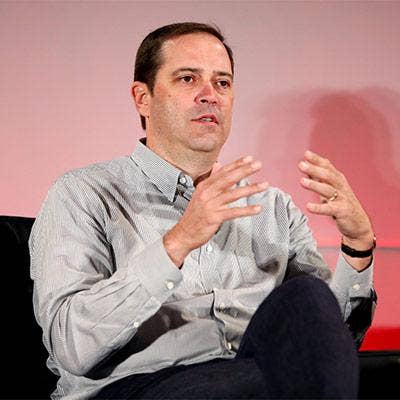6 Interesting Facts Cisco Wants Investors To Know

How Cisco Is Driving Shareholder Value
Cisco recently sent shareholders a presentation called "Driving Shareholder Value," outlining key information the networking giant wants its investors to know -- such as its executive compensation philosophy and its internal governance practices.
Filed with the U.S. Securities and Exchange Commission, the presentation included some fascinating revelations, including the fact that about 94 percent of former CEO John Chambers' total fiscal year 2015 direct compensation was performance-based, and a list detailing Cisco's top five focus areas for the future.
The San Jose, Calif.-based networking leader also revealed how Cisco evaluates candidates for its board of directors and broke down its fiscal year 2015 product revenues by market segments.

CEO Robbins' Compensation Based On Performance
Cisco's executive compensation philosophy is "pay for performance." In FY15, 94 percent of the CEO's total direct compensation was performance-based. The CEO's base salary represented only 6 percent of the total compensation, according to the filing.
"Cisco executive compensation philosophy and practice continues to be to pay for performance," the presentation said. "Our compensation program is strongly aligned with long-term interests of our shareholders."
Chambers' base salary for FY15 was $1.1 million, while Cisco's new leader, Chuck Robbins , is starting at an annual base salary of $1.15 million. The three elements of compensation include the base salary, variable cash incentive awards and long-term, equity-based incentive awards.

Pay For Performance
Other top executives at Cisco -- such as Kelly Kramer, chief marketing officer, and Pankaj Patel, chief development officer -- are also compensated primarily based on performance. About 70 percent of Cisco's top executives' total direct compensation was performance-based for FY15, according to the presentation.
"As partners, that type of [compensation model] only helps us," said Randy Olsson, vice president of Strategic Technology Group, Network and Security, at New York-based Presidio, a top Cisco partner ranked No. 21 on the CRN 2015 Solution Provider 500 list. "That's because the message is clear, which is, 'We're not just buying these products and thinking about what we want to do in a couple years from now,' -- it's, 'We're trying to make this happen today' and that's what that [compensation model] says. Cisco is not going to wait a couple years and hope for the best -- they don’t have that kind of time. The moment is now, and I think for partners, it is the same thing."

Focus Areas: Security, Internet Of Things, Analytics
Cisco is telling its shareholders that its top five strategic focus areas are the Internet of Everything (Cisco's term for the Internet of Things); security; cloud and "next generation" data center; software; and analytics.
The networking giant has made these areas of interest clear through new strategic partnerships and acquisitions. Just this week, Cisco purchased IoT and data analytics specialist ParStream as well as the security threat analysis and protection company Lancope for $452.5 million to extend its "Security Everywhere" strategy.
"These acquisitions just really fit well with everything Cisco is doing," said Greg Kushto, director of security practice for Force 3, a Crofton, Md.-based network security solution provider -- ranked No. 79 on CRN's 2015 Solution Provider 500 list -- and a Cisco Gold partner. "There's OpenDNS [and] several others that just make sense, and it's the right time to do these … things [such as] security, which is really big right now, and that won't be changing anytime soon."

Breaking Down The Numbers
Cisco broke down its revenues for FY15 by product segment. Nearly 60 percent of its sales -- about $22.4 billion -- came from switching and routing, followed by collaboration, at 10.5 percent and $4 billion. Cisco's service provider video segment pulled in $3.6 billion, trailed by its data center products at $3.2 billion, wireless at $2.5 billion and security at $1.7 billion.
Although its switching and routing brought in the majority of product revenue for Cisco, partners say they're unconcerned, because the vendor is using its position to build other market segments such as security and IoT to help craft business solutions.
"Now with cloud, hybrid networking with ACI -- all the things we have where you can tie multiple computers, multiple switches, networking or security equipment together, Cisco is saying, 'Let's figure out what you're trying to do, and then we can figure out how we can get the equipment to do it for you,' " said Olsson. "It's a much better conversation to have with a company's CEO or board of directors as a partner. … Cisco has always been the networking giant -- I think their goal is to become the IT giant."

'Shareholder-Friendly' Corporate Governance
The company says its governance practices -- such as its annual elections, majority voting and the ability for shareholders to recommend a director candidate to the board -- are "shareholder-friendly."
Cisco assured its shareholders that it's committed to taking a thoughtful approach to refreshing its board of directors, as the nominee evaluation process generally takes several years. When evaluating a nominee, the company said, Cisco's board considers the candidate's technology skills, ethics and integrity, business experience and diversity.

Leadership Changes
The presentation highlights the hiring of Robbins, saying the board conducted a "thoughtful and thorough CEO search process" before appointing him. It points to Robbins' more than 20 years of leadership experience and 17 years at Cisco, including previous service as senior vice president of worldwide field operations.
The filing also says Chambers remains as executive chairman of the board to "ensure a smooth transition."
In 2012, the board began its initial search to replace its longtime leader. The board conducted thorough interviews with candidates for around 10 months until it unanimously selected Robbins in May. In May, Chambers said: "During that time Chuck just pulled away from all of his peers both internal and external, and it was unanimous with the board in our very first straw vote just to see where we were on it."